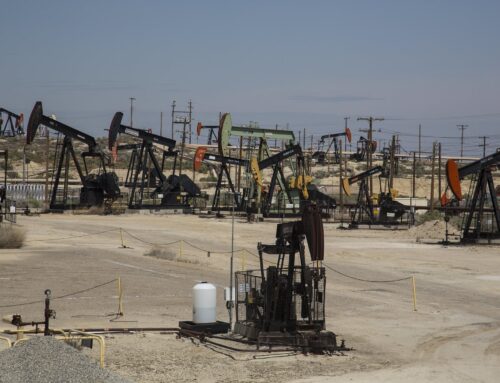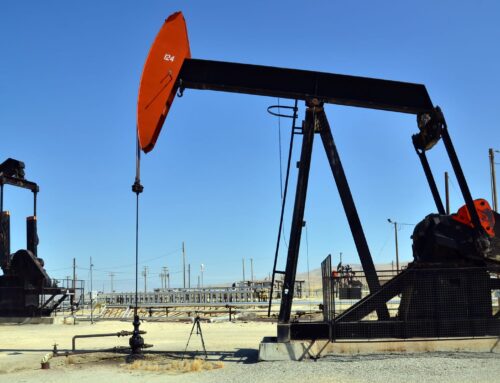On February 9, the Senate Environment and Public Works Committee held a hearing to examine two bills, S. 2373, American Nuclear Infrastructure Act of 2021 and S. 1290, Sensible, Timely Relief for America’s Nuclear Districts’ Economic Development Act of 2021, or the “STRANDED” Act. Both bills contain provisions that would provide further subsidies in the form of grants, awards, credits, etc. to the already heavily subsidized nuclear energy industry.
What was alarming about the hearing was the lack of discussion and scrutiny of existing subsidies for nuclear energy, particularly regarding credits for existing nuclear facilities. The subsidies raised in these bills are not new and some have already been enacted into law in various forms. Here’s some helpful context:
- S. 2373, American Nuclear Infrastructure Act of 2021 proposes to give credits to nuclear facilities at risk of shutting down even though such credits already exist. Most of the language included in the bill came from S. 4897, American Nuclear Infrastructure Act of 2020, which was introduced in the 116th Congress and passed by the Senate Environment and Public Works Committee in December 2020. The bill proposed to establish a 4-year credit for struggling nuclear plants.
- The President’s budget released in May 2021, doubled down on the idea of creating a credit for nuclear facilities , by this time for ALL existing facilities. The Senate Finance Committee’s Clean Energy for American Act (S.2118), which was introduced around the same time, also attracted an amendment that would have given credits to all nuclear plants. Although the amendment did not get voted on during the markup of the bill, the idea to create credits gained momentum.
- The Bipartisan Infrastructure Package (P.L. 117-58, Infrastructure Investment and Jobs Act) appropriated $6 billion for FY2022 through FY2026 for a new Civil Nuclear Credit Program, which will allocate credits to facilities at risk of closure..
- On top of the Infrastructure bill’s $6 billion, the Build Back Better Act proposed a new zero-emission nuclear power production tax credit, which would become section 45W of the tax code if the bill is passed. The Joint Committee on Taxation estimated that the new 45W would cost taxpayers $23 billion from FY2022 to FY2031.
With the Build Back Better Act stalled, the bills represent another effort by Congress to dole out money to the nuclear industry. Section 301 of S. 2373 American Nuclear Infrastructure Act of 2021 proposes to:
- Give 4-year financial credits to existing nuclear reactors that are projected to shut down due to economic factors, eligible for renewal until September 30, 2027.
- A nuclear facility that wants to be certified to receive credits shall submit in a sealed bid:
- Information on operations costs like average annual operating loss per megawatt-hour and other financial information like bulk power market prices data, operations and maintenance costs, etc.
- An estimate of the potential incremental emissions if the facility were to shut down
- A detailed plan to sustain operations after the credit period with and without additional credits
- The bill establishes NO cap for this credit, as it authorizes “such sums as necessary” to be appropriated.
- A nuclear facility that wants to be certified to receive credits shall submit in a sealed bid:
If that sounds familiar, it’s because the credits are nearly identical to the credits already enacted in the Infrastructure Investment and Jobs Act. Some Members of Congress seemingly want to give out the credits AGAIN, except this time uncapped, to nuclear power plants that are uncompetitive against other, cheaper energy options.
S. 2373, American Nuclear Infrastructure Act of 2021, includes several other provisions that would provide additional subsidies to the nuclear industry:
- 201. Advanced nuclear reactor prizes
- establishes prizes for advanced nuclear reactor licensing equal to the amount of fees assessed and collected by the Nuclear Regulatory Commission (NRC). The award will essentially reimburse certification fees for advanced nuclear reactors that most likely will have already received generous amounts of grant or award money from the Department of Energy (DOE) nuclear R&D programs.
- 203. Enabling preparations for the demonstration of advanced nuclear reactors on Department sites.
- provides federal funding for an early site permit to demonstrate advanced nuclear reactors at a DOE site, further reducing expenses for the nuclear industry.
- 502. Authorization of appropriations for superfund actions at abandoned mining sites on Tribal land.
- Authorizes $100 million to the EPA for each of FY2022-2031 to remove, remediate, and conduct health assessments on abandoned mine lands and to make grants to the Indian tribes. Thousands of toxic and dangerous abandoned uranium mines litter the Wester landscape posing real threats to health and safety. Cleaning up the mine sites is long overdue but environmental and financial liabilities should be shouldered by taxpayers. The extractive industry profited from uranium mining on federal lands without paying a cent in royalties thanks to the Mining Law of 1872; now they should pay for cleaning up the mess they created in the first place.
- 503. Nuclear closure communities.
- Establishes grant programs to help nuclear closure communities, defined as units of local government (counties, cities, towns, school districts, etc.) that are affected by a nuclear power plant shutdown by:
- assisting with economic development. The bill authorizes $30 million for each of FY2022-2027
- funding community advisory boards. $5 million is authorized for each of FY2022-2024
- Establishes grant programs to help nuclear closure communities, defined as units of local government (counties, cities, towns, school districts, etc.) that are affected by a nuclear power plant shutdown by:
S. 1290, Sensible, Timely Relief for America’s Nuclear Districts’ Economic Development Act of 2021, or the “STRANDED Act of 2021” include these following provisions:
- 4 Innovative Solutions Prize Competition
- Directs the Secretary of Energy to establish a prize competition for proposals for affected communities to carry out alternatives to nuclear facilities, generating sites and waste sites.
- Proposals that are selected will be awarded $500,000 and DOE shall develop a pilot project based on each awarded proposal for $500,000 as well.
- Sec 6. Economic Impact Grants
- establishes a noncompetitive grant for local governments, providing $15 per kilogram of spent nuclear fuel stored at eligible civilian nuclear power plants
- 7 Authorization
- Authorizes $175 million for each of FY2022 through FY2026. No amount can be used to offset funding for other federal programs.










